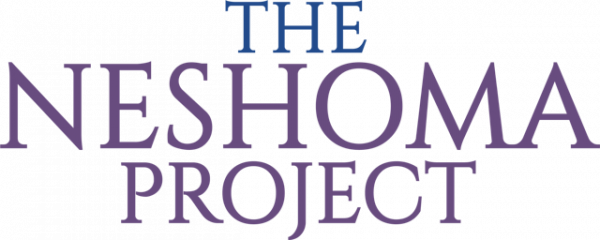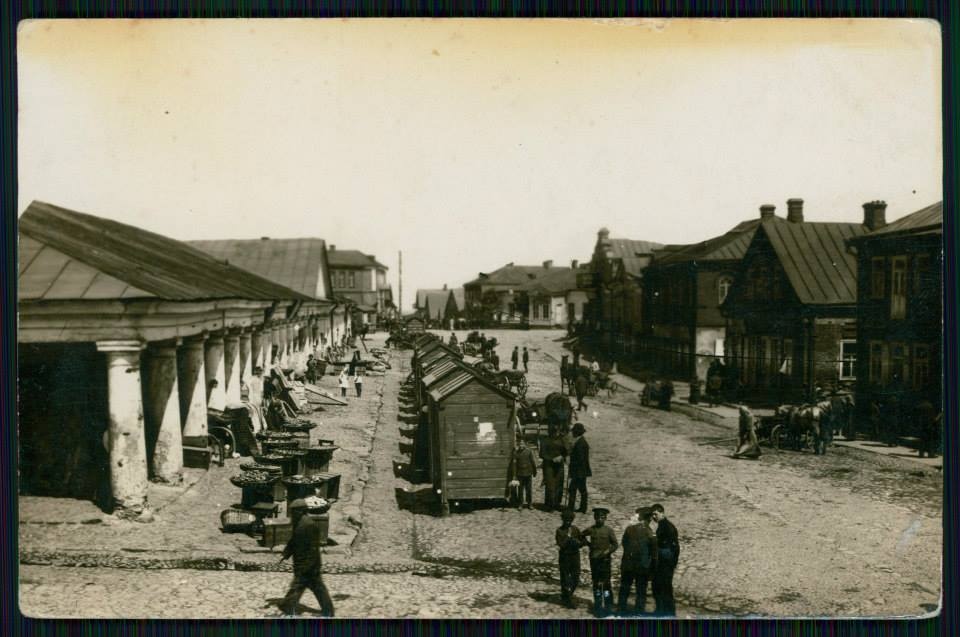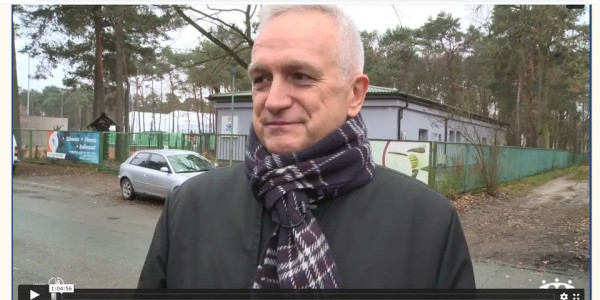The Neshoma Project: CONVERSATIONS WITH POLES RESCUING JEWISH MEMORY
ROZMOWY Z POLAKAMI RATUJĄCYMI ŻYDOWSKĄ PAMIĘĆ
06/11/2020 | Na stronie od 06/11/2020

From: The Neshoma Project
What is The Neshoma Project?
I conceived of The Neshoma Project: Conversations with Poles Rescuing Jewish Memory, when I realized that not only would the survivors be gone soon, but so too those who knew them. In March 2014 I was visiting the Majdanek death and labor camp with the late historian Robert Kuwalek. Robert was an inspiration to many in the field of Jewish remembrance (indeed you will hear him mentioned in several of the conversations that are part of The Neshoma Project). On that visit, we were confronted with a tour guide giving her group incorrect information about the camp. At that point I wondered aloud to Robert what would happen when the people like him, who really understood the stories and knew the facts, were gone. Robert agreed that this was important to think about. In a few months this inspirational, compassionate and committed man would be dead at age 47, leaving a hole in many people’s lives. This archive is dedicated to his memory.
Before World War II Jews comprised ten percent of the population in Poland. Ninety percent of them (three million) were murdered during the Holocaust, among them many members of my family. It was only in 1989 with the fall of communism that large-scale Jewish remembrance became possible in Poland. Today, all over Poland there are people who, in big ways and small, through institutions and on a grassroots level, are remembering the Jews. The goal of The Neshoma Project is to capture a sense of these people—to record for posterity their ideas and motivations around the bridge building they are called to do. My hope is that meeting with these souls and their dedication to healing historical wounds will be an inspiration to present and future generations. This will be of particular importance once the survivors, their children and anyone who knew the large Jewish community of Poland are gone. Many of the first generation of non-Jewish Poles to engage in this work of remembrance grew up during communism when Jewish subjects were taboo. As hard as it is to comprehend, it is common for them to have known nothing about the diverse, Jewish community that had once been citizens of their land living side by side with their non-Jewish neighbors. In many cases, the discovery of this “absence” was a catalyst for action. “Action” in this case means remembrance.
The Neshoma Project is a joint project between me, my organization—Bridge To Poland, and the Brama Grodzka-Teatr NN Centre in Lublin, Poland.
How to navigate the site:
The website of The Neshoma Project contains video conversations between me, Leora Tec, and the people I call, “Rescuers of Memory.” There is a full interview and at least one short clip for each person. You can access them through the Home page or through the Video Archive page. Some of the interviews are in Polish and some in English. All Polish interviews have English subtitles. The short clips in English have Polish subtitles. Part of the next phase of the project will be creating Polish subtitles for the full English interviews.
There are some photographs on this page that chronicle my Neshoma Project journey. In order to view the photo captions while going through them, please keep your cursor on the photo.
I am grateful to all who are visiting this website and welcome your feedback and comments on the contact form.
Warmly,
Leora
Leora Tec, creator of The Neshoma Project
The Video Archive
From The Video Archive: Zbigniew Nosowski has an interesting perspective on Jewish remembrance: He is very much motivated by his Catholic faith, perhaps the only one of my interviewees to express this as their impetus for Jewish remembrance.
Who Made It Happen?
Leora Tec
Leora Tec, the founder and creator of The Neshoma Project, is the founder and director of Bridge To Poland, an organization she founded to delve into nuanced questions of memory, commemoration, suffering, forgiveness and identity as they relate to the history of Jews in Poland. Bridge To Poland seeks to highlight, through writing, film, workshops, presentations, research projects and unique travel experiences, in grateful partnership with Brama Grodzka-Teatr NN in Lublin, Poland, how non-Jewish Poles are commemorating Jewish life in Poland today.
Leora is the daughter of Holocaust survivor and Holocaust scholar Nechama Tec, who was born in Lublin, Poland in 1931. Leora is the American Ambassador and Special Projects Partner to Brama Grodzka-Teatr-NN and serves on the Board of the American Association for Polish Jewish Studies. She holds a B.A. from Wellesley College and a J.D./ LL.M from Duke University School of Law. In her spare time, Leora enjoys improvisational comedy, learning languages and writing.
Grateful to have received the Mary Elvira Stevens Traveling Fellowship in 2018 from Wellesley College to embark upon this project, Leora traveled to Poland to begin interviewing those whom she calls, “Rescuers of Memory.”
Brama Grodzka-Teatr NN
Brama Grodzka-Teatr NN is a theater and municipal institution in Lublin, Poland whose core mission is the remembrance of the 43,000 Jews who lived in Lublin before World War II. Partnering with Leora on The Neshoma Project was a natural fit for an organization staffed by non-Jewish Poles dedicated to Jewish memory.
Be Part of the Neshoma Project
If you are inspired by the voices you heard here and would like to help more of them come to light please consider making a donation to continue this important work. In our fractured world learning of the dedicated souls working to preserve Jewish memory in Poland is healing and gives hope for humanity. As I said on the thank you page, this is a labor of love but even a labor of love has operating costs. Your kind contribution will help us to pay for translation (Currently all the clips and the full-length Polish videos have translation, but the full-length English ones do not. And, my goal is to have the whole website accessible in Polish and English.), transportation, videographers, website developers, editors; all the pieces that have enabled the Neshoma Project to come to life. There are many more voices that need to be added here. Your part in making that possible is deeply appreciated.
Resources
Websites
- Bridge To Poland
- Brama Grodzka-Teatr NN
- Forum for Dialogue
- Jewish Historical Institute
- Polin: Museum of the History of Polish Jews
- Shtetl Routes

- The Museum of Mazovian Jews
- The renovated synagogue and museum in Chmielnik
- Katarzyna Winiarska's website about the Jews of Białowieża
- Dr. Krzysztof Czubaszek's website about the Jews of Łuków
Unikalny film niemiecki z 1940 r. pokazujący łukowskich Żydów - The Marek Edelman Dialogue Center in Łódź
- The Galicia Jewish Museum
- Anna Brzyska's website about the Jews of Brzesko
- Karolina and Piotr Jakoweńko's, Brama Cukermana, dedicated to the Jews of Będzin
- Dariusz Popiela's Ludzie, nie liczby or People, Not Numbers
- The Kraków Jewish Culture Festival
- Małgosia Płoszaj's blog about the Jews of Rybnik
Books
- Dry Tears: The Story of a Lost Childhood by Nechama Tec
- Defiance by Nechama Tec
- When Light Pierced the Darkness: Christian Rescue of Jews in Nazi-Occupied Poland by Nechama Tec
